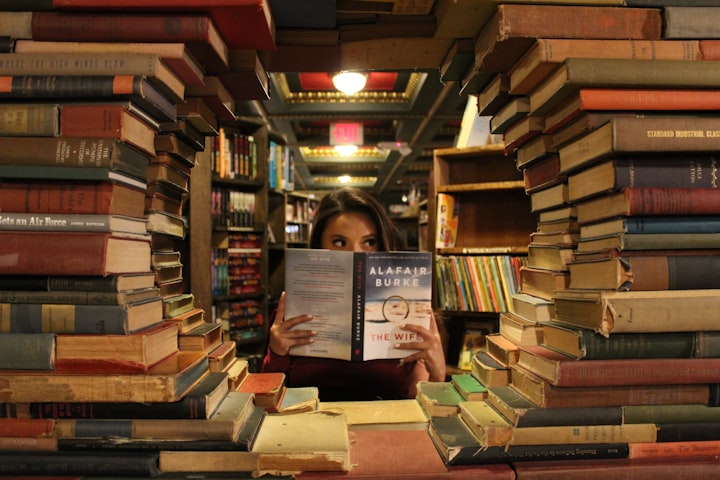Yellow Roman Candles
"exploding like spiders across the stars. . ."
2005
Ana Rosa sat across from Elisabeth Winslow, the bouquet of marigolds laid across her lap. The enormous, yellow flowers clashed with the elegant room decorated with floor-to-ceiling bookshelves and muted oil paintings. Ana didn’t need to study the titles to know that many of them were written not just by Teddy Winslow, her former employer, but by his relatives as well.
Concord had always been a haven for intellectuals and other literary types but even in such a rarefied atmosphere, the Winslows stood out. Since their forefather and mother had stepped off the Mayflower back in 1620, the family had produced a harvest of senators, a smattering of novelists, a poet and far more than its share of industrial titans.
The titans were, for the most part, forgotten.
The poet, however, remained a national treasure.
“How kind of you to come.” From her wingback chair, Winslow’s third wife eyed the marigolds with ill-concealed distaste. “I can’t quite recall from your email—how do you know Teddy?”
Ana resisted the impulse to tear the petals and scatter them across the expensive Persian carpet. “I was his maid. In Warwick.”
This time Elisabeth—Libby, as she called herself—didn’t bother to make an effort. She pressed her lips together. “His monastic period. Teddy wrote his best work during those two years. How extraordinary that you’ve come to visit after such a long hiatus.”
Ana smiled but stayed silent. She was so close. She couldn’t afford to jeopardize everything now.
Her compliance seemed to encourage Libby, whose unlined heart-shaped face suggested she was in her late twenties or possibly early thirties. Her false enthusiasm waxed real for a moment. “He. . .doesn’t get many visitors these days.”
“Such a shame,” Ana leaned forward in her own wingback chair, “for someone like him be so isolated.”
Libby nodded, her eyes suddenly glassy. “He won’t be,” she said, “once the biography comes out.”
Of course, Ana had read about Teddy’s cancer. His biographer had written a piece on him in The Atlantic and had made it clear the esteemed poet didn’t have much time left. That had been six months ago. Ana knew when she read it she didn’t have much time either.
But now she was here. “Is he,” Ana fumbled for a word, “aware…this morning?”
“It’s a good day,” Libby said briskly and Ana got the distinct impression such days were rare. “When I told him you were coming, he was pleased. He seemed to remember you.”
“That’s wonderful.” Ana caught the emphasis on seemed. After all, why would Winslow remember a maid from twenty years ago, especially one that he hadn’t had in his employ for very long? “So he can see me then?”
“He’s looking forward to it.” Libby rose from her chair and walked to the doorway. “If you’ll just follow me."
Ana joined her without a word.
When they reached the stairs, Libby gave one last glance to the gawdy bouquet. "Are you sure you don’t want me to put those in water?”
“Quite sure.”
*
Teddy’s bedroom looked out onto the vast Winslow estate. From the French windows across from the bed, Ana could see the rows of pines that lined the sprawling yellowed lawn. Here and there, strategically placed pumpkins dotted the grounds.
Winslow sat propped against the headboard, a mere skeleton. His gray pallor gave further evidence that his body was shutting down. He still dyed his hair and its black sheen made him look like one of the Halloween decorations she’d seen on the drive down from Maine.
He did his best to hoist himself up into a sitting position. “Ana,” he said, letting his gaze run the length of her body. “My God, how you’ve changed. You’re a veritable matriarch now. And just look at those marigolds.”
For a moment, she saw herself through his eyes. At 43, she knew she was a far cry from the girl she’d been all those years ago when she’d first begun cleaning his “cottage.” Her waist was gone and she wore her thick, chestnut hair short these days. In her tight, flowered Wal-Mart dress, she looked cheap and weirdly incongruous with the weather. And she had no doubt that he’d seen her bare ring finger. That he’d meant to hurt her.
She controlled her expression. “You’ve changed too.”
The insult missed its mark. He wagged his head sadly. “Damn cigarettes.”
The tips of his fingers, she noticed, were still nicotine yellow. She wondered if Libby allowed him to smoke, despite the oxygen tank at his side. An image of those fingers holding a bloody facecloth to Adriana’s nose flashed unbidden into her mind. She tamped it down.
“I often think back to those years,” he said, stifling a cough. “Nothing better for the imagination than to immerse oneself in the natural world. Afterward, I always kicked myself for not staying longer. God, I loved that house, those stars—that purity.”
Ana gripped the marigolds tighter. She could do it now. No, she thought. Better to wait a little longer. “Actually,” she told him, “I just bought it.”
The cough bubbled over. When he finished, he stared at her, his rheumy blue eyes suddenly sharp. “Bought it?”
“A year ago today.”
“You’ve come up in the world.” The corners of his mouth twitched.
“Actually, I haven’t.” Ana walked away from the windows and seated herself in the chair by the bed. She set the marigolds onto the spread and deposited her purse into her lap. A bit of golden pollen scattered across the pristine white fabric. “I’m still a maid.”
He was right to be surprised. The official story of those two years had Winslow living in near-poverty and unmitigated seclusion while he wrote Deer Hour and Love Studies. In reality, the "Thoreau-style cottage" was a two-story colonial with three bathrooms, five bedrooms and an adjoining barn that served as a garage. In reality, he had a maid. A maid and then a houseguest. Adriana.
“I always knew you’d marry money.” Had his breathing picked up? “Though why you’d want to keep slaving away as a common servant—”
She cut him off. “I never married,” she said. “Or had kids.”
“I’m sorry to hear that. You used to be quite fetching. One of those yokels would’ve been lucky to have you.”
Ana stared at him. Teddy had always been a bit Gatsbyesque but he’d grown into a caricature since she’d seen him last. “My sister went missing,” she said flatly. "It upset me."
The statement hung in the air and for a moment Ana was sure she could actually see her sister as she had been the summer when she met Winslow. Raucously beautiful and far more brilliant that she should have been, given the excuse for an education she’d gotten at Warwick Public High School. Everything about Adriana had been big—her dark, waist-length hair, her hoop earrings, her insatiable mind. Her love for Teddy’s poetry, even before she met him.
“Adriana.” His voice was quiet.
So he still remembered her name. Well, why wouldn’t he? After she begged Teddy to take her on as his “assistant,” he’d balked. She was only 18, for one thing. He needed someone with gravitas to handle his extensive correspondence. She’d promptly jumped onto the table, called him a repressed Brahmin and recited Kerouac:
The only people for me are the mad ones, the ones who are mad to live, mad to talk, mad to be saved, desirous of everything at the same time, the ones who never yawn or say a commonplace thing, but burn, burn, burn like fabulous yellow roman candles exploding like spiders across the stars and in the middle you see the blue centerlight pop and everybody goes “Awww!”
He had relented.
Ana opened her purse. “Do you know what day it is?”
“November 1st.” If he knew what was coming, he gave no sign.
“In my family, we call it Dia de los Muertos.” Ana translated for him. “Day of the Dead. When the souls of the departed appear in our world.”
Downstairs, a door opened and shut. A car engine started. Whether Teddy heard the sound, she couldn’t be sure. Libby, no doubt. Ana was just a maid. What harm could she do?
“Is that why you brought those ugly things?” Contempt seeped into Teddy’s voice. “For some cheap parlor trick? Scare the old man to death? Or--don’t tell me--you actually believe that nonsense?”
“No.” Ana pulled a Polaroid out of her purse without looking at it and laid it beside the flowers. “I don’t.”
Not for lack of trying, she thought. For 20 years she’d attempted to raise Adriana’s ghost with marigolds--cempasuchitl--and for 20 years she’d failed. Even the flowers that symbolized the fragility of life couldn't call her forth. Wherever her sister’s spirit was, it wasn’t in Warwick—not that Ana could blame her for that.
Winslow stared straight ahead. The morning sunlight fell onto his face, washing out his features even more. “Whatever scam you’re trying to pull,” he said acidly, “isn’t going to work.”
Ana extricated another Polaroid and laid it next to the first. “Twenty years. That’s how long it took. To save enough to buy the house. To wait until the last family moved away. To search.”
His gaze darted to the photos. Away and back. Away and back.
“You can’t not look, can you?” She laid down a third photo--the one in a plastic bag--on the bed. “This one's got prints all over it. You’ve missed them, haven’t you? She was such a lovely corpse.”
It was true. With her hair fanned out behind her, Adriana could have been asleep. If it weren’t for the ropes around her wrists and ankles. She looked like a princess in some fairy tale, just waiting for her prince to rescue her.
But there had been no prince. There had only been Teddy Winslow and the obsession that had grown into rage when Adriana fell out of love with him. She’d still worked for him but she’d burned, burned, burned for someone else. He’d hit her first and promised never to do it again. A week passed before she quit. Another week went by before she disappeared. Talk started and stopped. No one dared accuse Teddy Winslow of anything but mercurial genius. And Adriana had been troubled, wild. She must have run away.
Teddy wasn’t even bothering to resist the lure of the photos anymore. “How did you find them?”
Ana shrugged. “I gave up, actually. After nine months of searching every nook and cranny in that place. Not to mention the barn. Then they found me.”
He forced his gaze back to her. “What is it you want,” he began, “—money—original manuscripts—.”
She emptied the contents of her purse onto the bed. The entire stash cascaded onto the marigolds. Leave it to him to think his lousy drafts would interest her. “I have what I want.”
She did. She had thought she’d sell Winslow’s old house the moment she found his stash under the floorboards in what had been a walled-off birthing room. She wondered why he hadn’t destroyed them but his face told her the answer. He’d probably told himself he’d return for them. Or, as the years passed, that no one would ever locate them.
Ana didn’t have her sister’s body but she no longer needed it. She had Adriana as she was that summer. Dancing as she howled Ginsberg. Scribbling her own verses across the attic walls. Burning.
Ana gathered the photos and deposited them back into her bag, relishing the pain their removal caused Winslow. “Sorry. I’m late for an appointment.”
She waited for him to ask the question. He didn’t. He already knew. The marigolds lay scattered across the spread. She had thought she would leave them, to remind him of what he'd done. But they were too bright, too alive, too much the sun that had been Adriana.
She gathered the flowers in her arms and turned away.
About the Creator
Lori Lamothe
Poet, Writer, Mom. Owner of two rescue huskies. Former baker who writes on books, true crime, culture and fiction.
Enjoyed the story? Support the Creator.
Subscribe for free to receive all their stories in your feed. You could also pledge your support or give them a one-off tip, letting them know you appreciate their work.







Comments
There are no comments for this story
Be the first to respond and start the conversation.